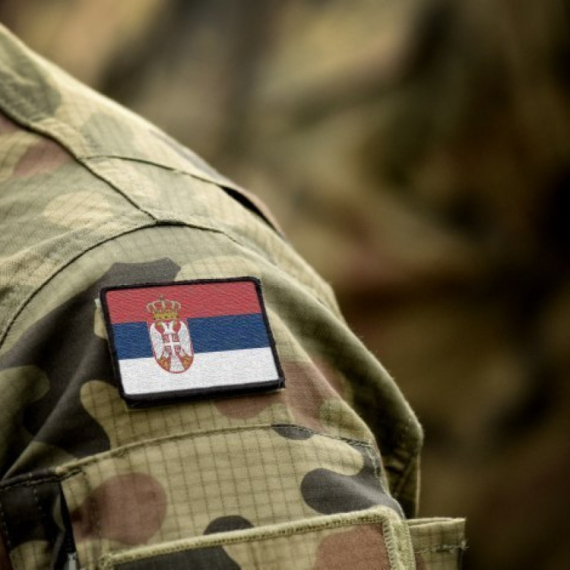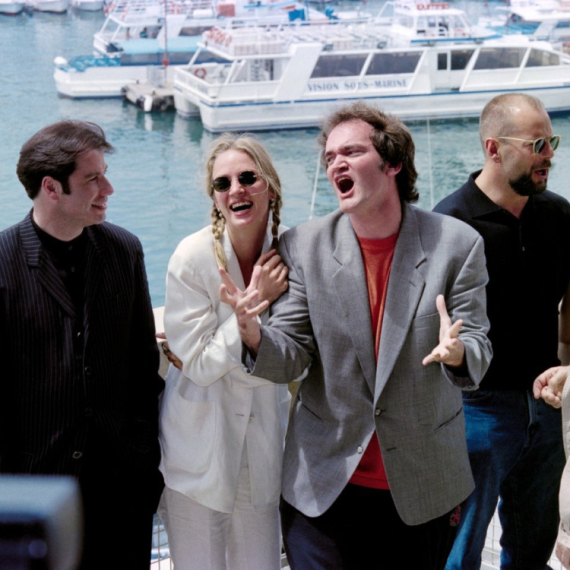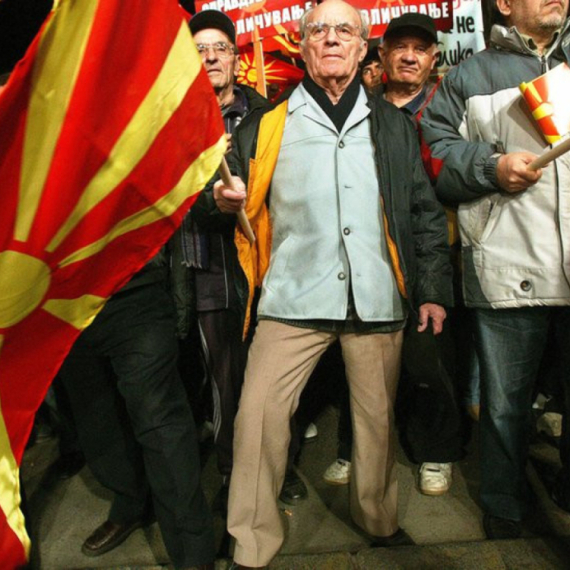“No political will for prosecuting former Nazis”
Efraim Zuroff says that there is a lack of political will for processing cases of former Nazi war criminals.
Tuesday, 16.09.2008.
15:35

Efraim Zuroff says that there is a lack of political will for processing cases of former Nazi war criminals. “The problem of processing Nazi war criminals does not lie in the fact that the perpetrators are hard to find or that the evidence is hard to come by, the key problem is the lack of political will of those countries where they are hiding to arrest them, and here I am thinking primarily of Austria and Hungary,” the Simon Wiesenthal Center Director told journalists in Belgrade. “No political will for prosecuting former Nazis” The Simon Wiesenthal director met yesterday with the Serbian war crimes prosecutor and the justice minister. He said that there were very few countries in the world ready to face and process war crimes cases, and that after his meetings yesterday it was obvious that Serbia was one of the few that were willing to do so. The reason for Zuroff’s visit is the recent cases that the Serbian war crimes prosecution has launched against those suspected of committing war crimes during World War II. An application has been filed for an investigation against Peter Egner, who is suspected of committing crimes against Serbs, Jews and Roma. There are also pre-trial hearings ongoing against Croat Milivoj Asner and Sandor Kepiro, who are accused of committing crimes in Slavonska Pozega in Croatia and Novi Sad respectively. “Above all, it is important for society and the government to make sure that those who killed Serbs, Jews and Romas are brought to account. That sends a strong and positive message. Unfortunately, not many governments are ready to make such efforts to see crimes punished. Because of this, I send support for the steps that this government has taken, both on my behalf and that of the Simon Wiesenthal Center,” he said. Egner is suspected of committing war crimes in Belgrade during World War II. The U.S. government recently transferred evidence regarding his crimes to the prosecution in Belgrade and began the process of stripping him of his U.S. citizenship. The situation is more complicated in the other two cases. Asner, who was the chief of the Ustasha police in Slavonska Pozega, is suspected of killing hundreds of Serbs, Jews and Romas. He lives in Austria and has not been extradited to Croatia because of poor health. The Croatian courts are waiting on a new decision from Austria, after he was recently photographed drinking wine in a café and watching a football match. The third suspect, Kepiro, lives in Budapest and has already been found guilty of crimes committed in 1944, when Hungarian fascists threw more than 1,300 Jews, Romas and Serbs under the ice of the Danube River. However, he never served his sentence, and he is suspected of being responsible for other crimes which claimed the lives of 4,000 people. Zuroff believes that neither Austria nor Hungary have the political will necessary to process the cases of these former Nazis. Serbia has, however, shown a strong will to do so According to the Simon Wiesenthal Center, there are still several hundred Nazis alive who committed crimes during the war. Ten were identified during the Center’s ‘Last Chance’ operation, while the exact addresses are known of nine others.
“No political will for prosecuting former Nazis”
The Simon Wiesenthal director met yesterday with the Serbian war crimes prosecutor and the justice minister. He said that there were very few countries in the world ready to face and process war crimes cases, and that after his meetings yesterday it was obvious that Serbia was one of the few that were willing to do so.The reason for Zuroff’s visit is the recent cases that the Serbian war crimes prosecution has launched against those suspected of committing war crimes during World War II.
An application has been filed for an investigation against Peter Egner, who is suspected of committing crimes against Serbs, Jews and Roma.
There are also pre-trial hearings ongoing against Croat Milivoj Ašner and Sandor Kepiro, who are accused of committing crimes in Slavonska Požega in Croatia and Novi Sad respectively.
“Above all, it is important for society and the government to make sure that those who killed Serbs, Jews and Romas are brought to account. That sends a strong and positive message. Unfortunately, not many governments are ready to make such efforts to see crimes punished. Because of this, I send support for the steps that this government has taken, both on my behalf and that of the Simon Wiesenthal Center,” he said.
Egner is suspected of committing war crimes in Belgrade during World War II.
The U.S. government recently transferred evidence regarding his crimes to the prosecution in Belgrade and began the process of stripping him of his U.S. citizenship.
The situation is more complicated in the other two cases.
Ašner, who was the chief of the Ustasha police in Slavonska Požega, is suspected of killing hundreds of Serbs, Jews and Romas. He lives in Austria and has not been extradited to Croatia because of poor health.
The Croatian courts are waiting on a new decision from Austria, after he was recently photographed drinking wine in a café and watching a football match.
The third suspect, Kepiro, lives in Budapest and has already been found guilty of crimes committed in 1944, when Hungarian fascists threw more than 1,300 Jews, Romas and Serbs under the ice of the Danube River.
However, he never served his sentence, and he is suspected of being responsible for other crimes which claimed the lives of 4,000 people.
Zuroff believes that neither Austria nor Hungary have the political will necessary to process the cases of these former Nazis.
Serbia has, however, shown a strong will to do so
According to the Simon Wiesenthal Center, there are still several hundred Nazis alive who committed crimes during the war.
Ten were identified during the Center’s ‘Last Chance’ operation, while the exact addresses are known of nine others.

























































Komentari 4
Pogledaj komentare